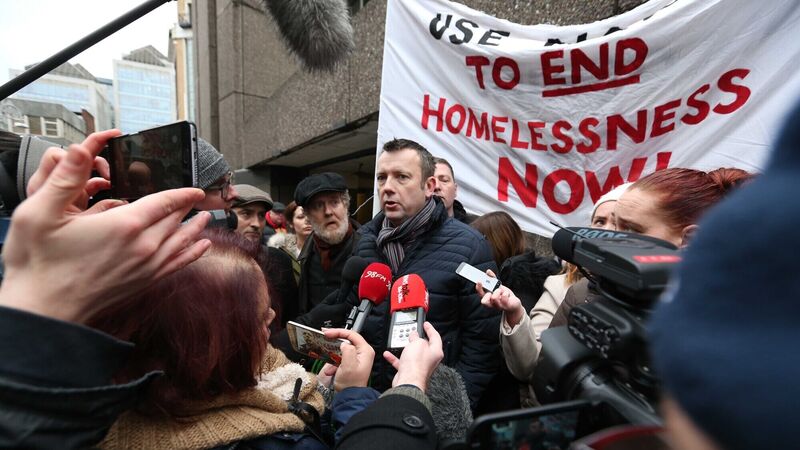Joyce Fegan: Has our outrage over homelessness been tamed?

Glen Hansard and Brendan Ogle outside Apollo House with their supporters in 2017. Although the situation has escalated in the past six years, our outrage, and our protests, seem to have eased.
n early January 2017, a large group of people formed a human chain around a building in Dublin city centre — Apollo House.















